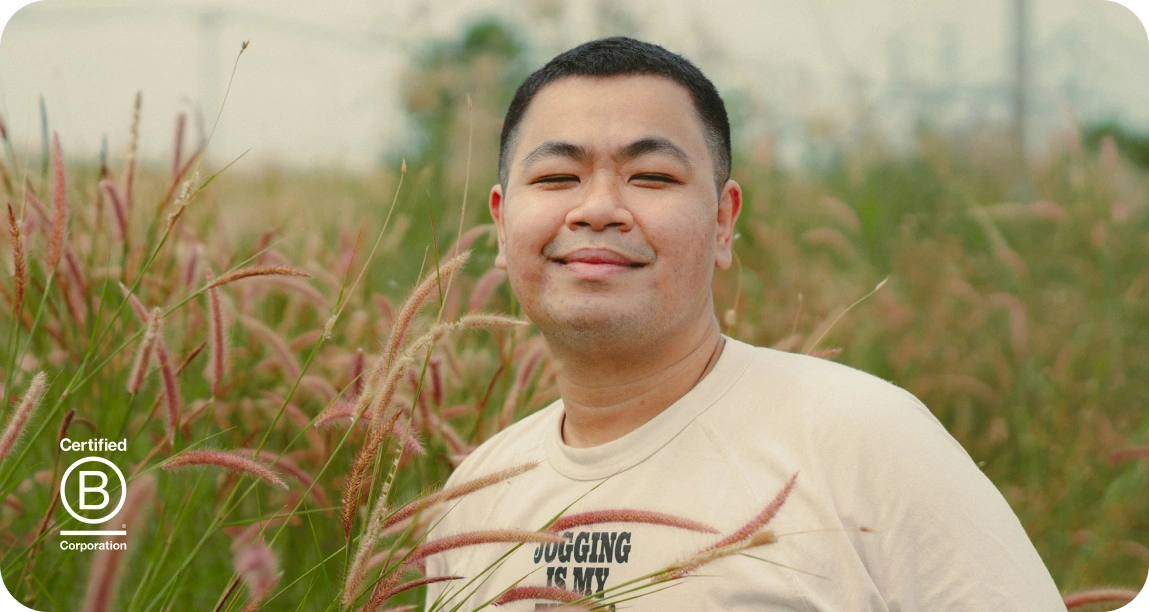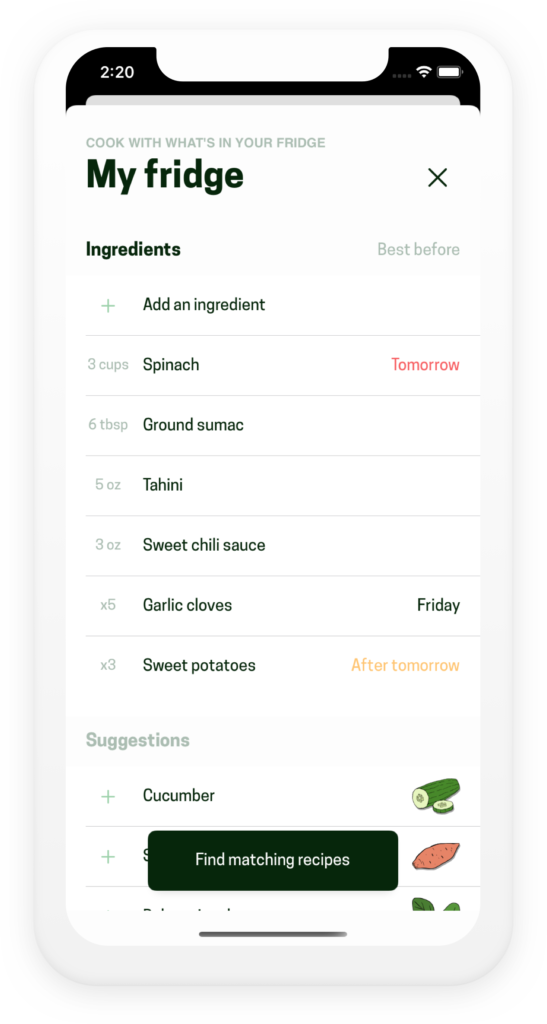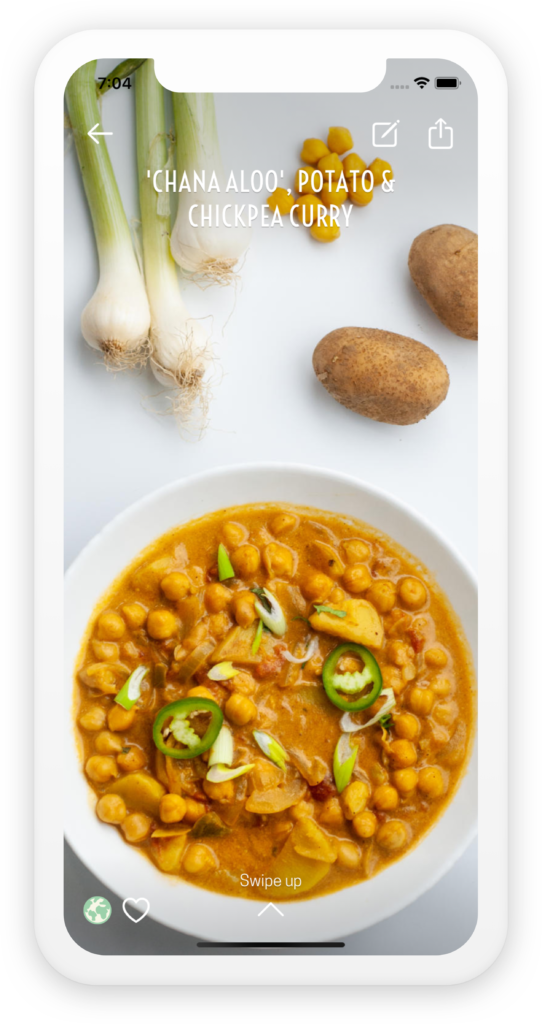A free training program for training CS reps with the skills, tools, and knowledge to delight customers and resolve issues.
Baptiste Malaguti is the CEO and Founder of Kuri. Kuri is a climate-friendly cooking app, that helps people figure out what to eat next. Kuri is available on iOS on the iPhone App Store. The app, recommends recipes that fit your dietary restrictions, lifestyle cooking level, but also there are in season around you. In addition, it takes into account also the impact of your food.
The app shows delicious recipes that use fresh ingredients that everyone can find at their local market. It also calculates the carbon footprint of the recipes so that it can potentially drive down the emissions of the diet.
Kuri features hundreds of recipes that we made with a lot of love and with a lot of focus on the quality of the image of the quality of the food.
https://youtu.be/J52dlR_IYP0
How did it all started?
Initially, when I started thinking about the idea behind it, there was nothing like impact mission-driven. Our intention was to build a personalized cooking app that would be able to guess what you want to eat next. The hyper-personalization was really the key starting point of Kuri.
Back then I was a product manager, doing some UX UI design, I didn't have any coding experience and I didn't have a technical co-founder. So I thought, 'I'm going to build it! It cannot be that hard to build an app'.
Well, I was wrong and it was a very painful journey. So, if I had to give advice to the founders out there who are going to start a startup, they have to be strong and stay strong and stay motivated. It's not always easy, but if you surround yourself with friends and loving people who believe in you, it makes the journey so much easier.
In the end, I taught myself how to code to build Kuri. Then, at some point during this journey, a former colleague of mine joined me as a technical co-founder. This way we shared the burden of building Kuri :)
What issue are you trying to solve with Kuri?
The mission of Kuri, to nudge our users towards climate-friendly recipes, only came later during the journey. I was an omnivore person, completely clueless about the impact of food on climate. Hence I started diving a little bit into the subject of the impact of agriculture on climate change.
It all began with the desire to reduce my meat consumption, and to do so I started to find new delicious recipes that would incorporate in my daily habits. Then, I got really passionate about the subject of food agriculture the place of animals in our food systems.
At this point, I kind of connected the dots and thought Okay I'm gonna do this transition from an omnivore diet to a vegetarian diet. And now I'm actually on a fully plant-based diet and it's so much more than just you know what you eat.
It has an impact on our entire food system on our entire environment biodiversity.
This became really a core mission within Kuri. In essence, it's the journey to switch from an omnivore diet to a vegetarian or plant-based diet or even just reducing your meat consumption.
It's a path that we want to share with others and we want to make it easier for others to jump on it as well because it's fantastic.
A Smarter Way to Build Your Global Team
What recommendation would you give to startups like yours?
Now Kuri has been launched a little bit more than a year ago and has been really well received. It's been a fantastic reception from our users especially praising the quality of the recipes, so that's great.
But, I have another important piece of advice for founders in the impact space. I would argue that it's really important to focus not only on the impact side of things but also on the core value that you're proposing to your users.
You can build a product that looks incredible on paper from a climate perspective from an impact perspective. But if it doesn't bring sensible value to your users you're going to end up spending a lot of money on marketing on something that people don't actually want to use.
What type of culture do you have in your start up?
I decided in 2016 to quit my job in Paris and go to Bali Indonesia which was probably the best decision of my life. I've been in this remote work culture for five years now, and this is really on those principles that we built Kuri.
The whole Kuri team is completely distributed. We have one co-founder in Romania, one in France, two in the US. We have someone also in Vietnam, and in many other different countries. I'm in Spain at the moment. Of course, COVID has made it a much more known way of working and lifestyle.
But I think it's really important to find people who are comfortable with this environment because it's not always comfortable, because it means that you're not necessarily going to meet in person. For instance, three of my colleagues have never met in person, but I'm fine with it and we're fine with it.
It's important to do extra efforts to build this remote culture to stay in touch because the journey of a startup is a rollercoaster and sometimes it can be really tough for individuals, for us as humans. That's why it's really important to stay in touch with your co-founders, and always check in and talk about life and many different things, not about just work.
What qualities do you look for, when hiring new team members?
When we think about bringing new teammates, now that we're a mission-driven startup, we're definitely looking for people with opinions on food and agriculture. People who are able to question things in this space are really important for us. In the team, we're having constant conversations and sharing articles about the subject that we care about.
In addition, as a startup, you have really limited resources. So it's crucial to make the right hires. That means that you really need to be able to vet the people that you're going to work with and see what they've been working on.
We need very autonomous people and being able to read or see what they've been doing in the past is super crucial.
As a startup, you may find yourself saying Yes to people. You might find yourself saying 'Wow, someone wants to work for my startup!' But I would say that it can be a trap.
If you don't take the time to do some research and find the right people to work with you, it can cost you a lot of money.
Tell us something you discovered during your journey
One of the biggest misconceptions that people have on food and its impact on climate, is the impact of transportation. This is something that I was also not aware of before I started building Kuri.
We tend to think that local food is so much better for the environment. It's true that it's great to buy from your local farmers and to promote smaller agriculture. But the impact of transport on the carbon footprint of your food is actually much smaller than we imagine.
Usually, for one ingredient only 8% of its greenhouse gas emissions come from transportation. The rest is how you grow this food. I think the emphasis should be rather put on meat/no meat or animal products plant-based products.
One last message for our community of changemakers?
What you eat is more important than where it comes from. Plus, I think it's important to be inclusive of all different paths, diets, lifestyles, and slowly with really good food, change people's minds. I think one great meal can change someone's dietary habits for the next years. That can start with you cooking for a friend, or you cooking for yourself. That's the magic of cooking.
Work for Impact supports brands and organizations for a better world
We are really thankful with Batiste for the very insightful interview and for interoducing his great cooking app. If you want to learn more stories from startups in the impact space, check the series: Work for Impact Meets.
We believe in setting goals that benefit everyone, not just ourselves. By working with socially and environmentally responsible organizations and nonprofits, we want to promote projects that have a positive impact on the world as a whole. We only succeed when everyone succeeds. If youd like to know more about us, sign up for free or book a meeting to know more about how you can scale your team.






